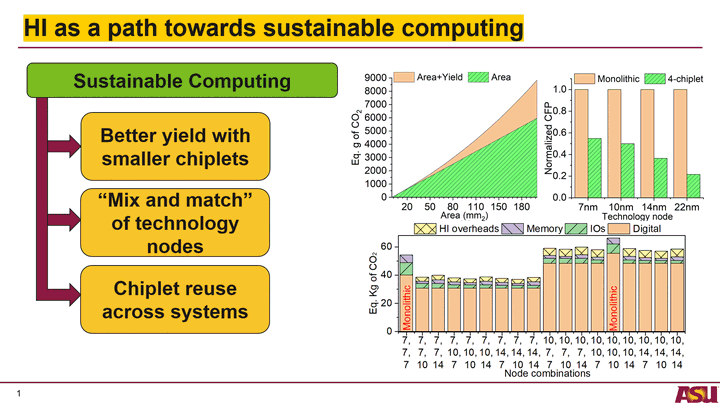Framework for Advancing Sustainable Computing

Every device, from data centers to handheld gadgets, carries a carbon footprint. The semiconductor industry is advancing toward creating smaller, faster, and more energy-efficient devices, often overlooking their environmental impact. The rising demand for applications like AI has significantly increased the emissions from information and computing technology (ICT), which now account for approximately 2-3% of the world’s total carbon footprint.
It is crucial to examine the lifecycle assessment (LCA) of semiconductor devices to identify carbon emission sources throughout their lifecycle. The semiconductor industry’s environmental impact manifests in two forms: embodied carbon footprint (CFP), which includes emissions from design and manufacturing activities, and operational CFP, which encompasses emissions generated during the device’s field operation. Different devices, such as smaller edge devices or power-hungry cloud computing GPUs, have varying energy usage and area footprints. It is essential to start considering carbon alongside area, power, and performance as a metric for optimization.
My work on ECO-CHIP demonstrates how Heterogeneous Integration (HI) can pave the way for sustainable computing. By leveraging the ability to reuse components across multiple products, reducing the design carbon footprint (CFP), improving yield through smaller chiplet areas, and mixing and matching various technology nodes, HI offers significant environmental benefits. We are all familiar with the 3R’s of sustainability: Reduce, Reuse, and Recycle. My other work, GreenFPGA, introduces a fourth ‘R’—Reconfigurability. This research examines the reconfigurability of FPGAs and compares their sustainability to ASICs.
- Sustainable Computing
- Heterogeneous Integration
- [**ECO-CHIP**](https://chetansudarshan.github.io/publication/ecochip/)
- Reconfigurabiltiy
- [**GreenFPGA**](https://chetansudarshan.github.io/publication/greenfpga/)